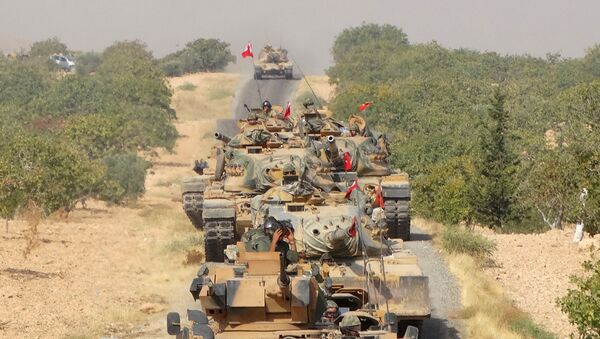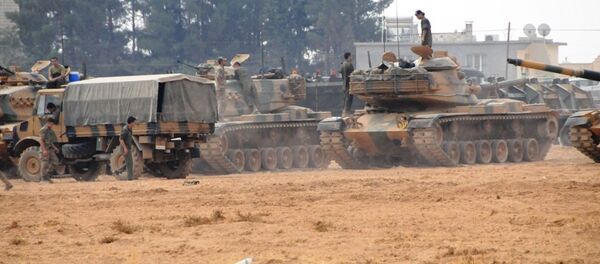According to him, the main goal Turkish President Recep Tayyip Erdogan is pursuing is to prevent a Kurdish autonomous region or state in northern Syria, along the Turkish border.
The Kurdish People’s Protection Units (YPG) are close to the Kurdistan Workers’ Party (PPK), the archenemy of the Turkish government. This is why Ankara found a military pretext and invaded Syria to prevent Kurds from connecting two cantons – Afrin and Kobani, Rodier explained.
As a result, Turkey managed to make a gesture towards the US-led international coalition which is fighting Daesh in Syria and Iraq.
What is more, according to the analyst, Ankara wants to establish a 30-km buffer zone between Turkey and Syria. Thus, the Turkish government plans to weaken the Syrian government led by Bashar Assad.
If Turkish forces stay in Syria for long this could lead to an increased number of terrorist attacks in Turkey.
However, the Turkish government has "nothing to lose" in terms of terror threats and will not stop the operation, according to Rodier.
"President Erdogan has no political opponents in Turkey, and after a failed military coup he is now in the pinnacle of his power. If the number of terrorist attacks in Turkey rises, public support for Erdogan will only grow," he said.
The analyst also commented on the diplomatic consequences of the Turkish invasion in Syria.
In fact, Washington is facing a dilemma. It does not want to "make Erdogan angry" because he has the keys to air bases used by the US Air Force.
At the same time, the US relies on the Syrian Democratic Forces (SDF) in the fight against Daesh. The SDF mainly comprise Kurdish forces from the YPG. This is why, Washington will have to maneuver between Erdogan and its Kurdish allies, Rodier suggested.
As for Europe, the EU relies on Turkey in dealing with the migrant crisis. Brussels will not protest the Turkish operation in Syria, he added.
"Finally, the Damascus’ allies – Russia and Iran – have little scope to maneuver too. In addition, they would be happy if Kurds fail to create their own state because this would be a precedent for others," Rodier concluded.




